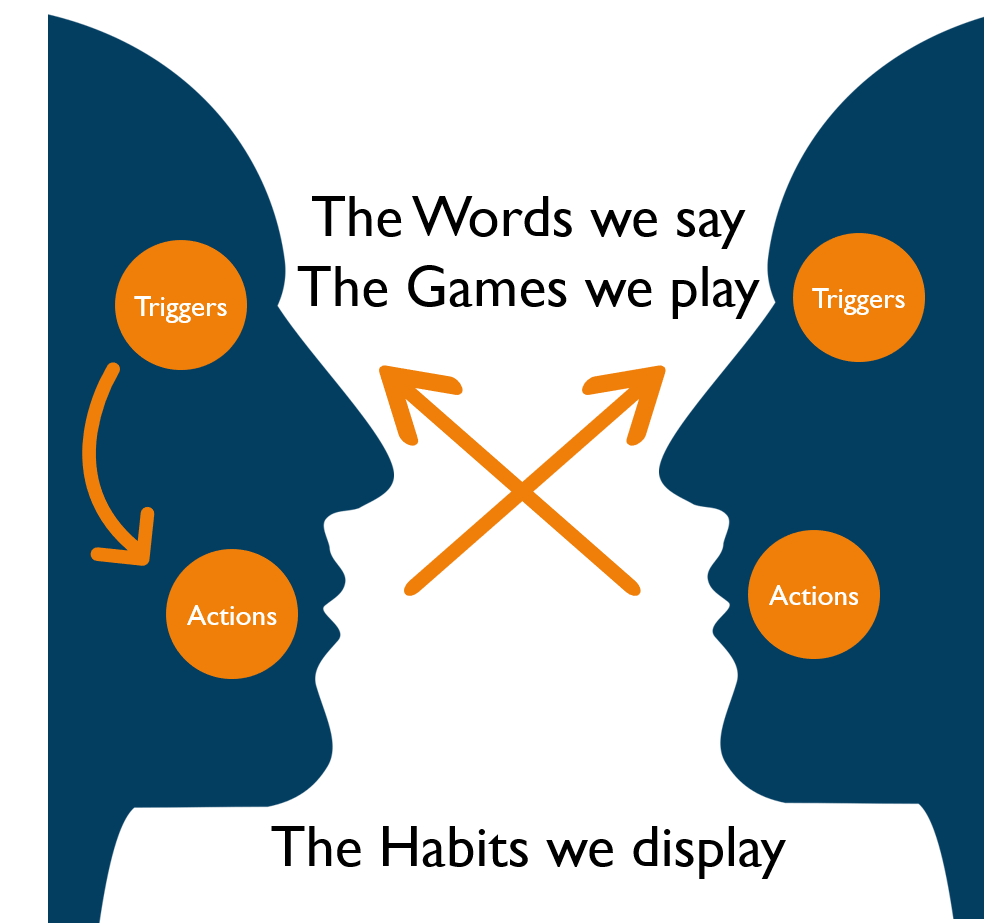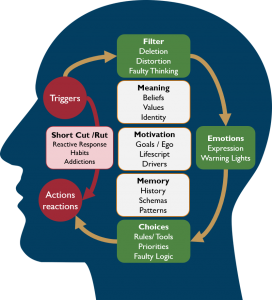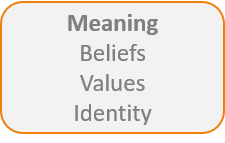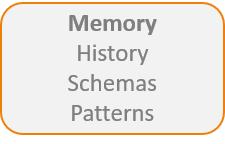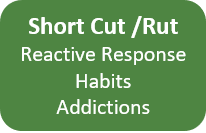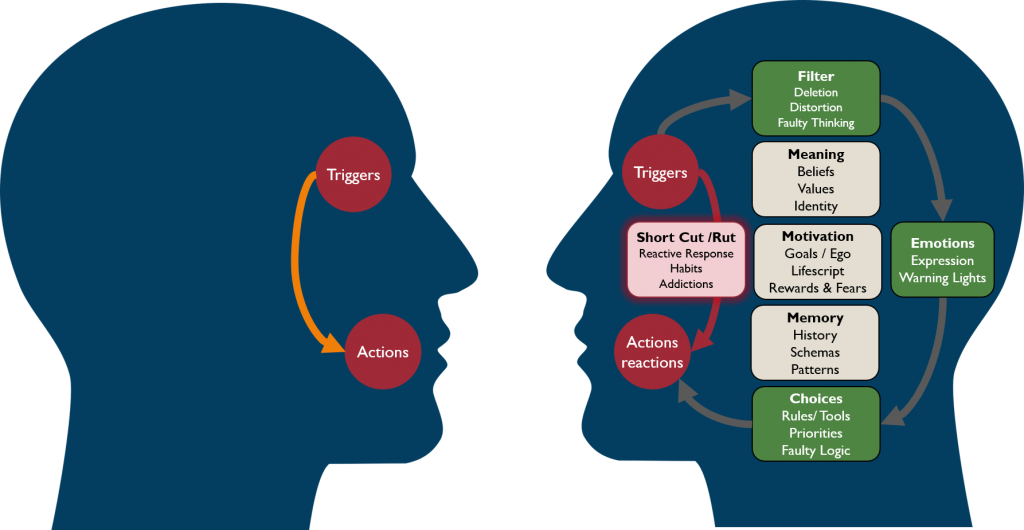
Our starting point is how to see the big picture. Just as a city is filled with beautiful buildings and a variety of architectures so is the world of change. There many models out there, and they are helpful but might not be totally truthful. For example, the London Underground map is helpful, but it is not to scale. It does get you from A to B.
So how do we fit all the models, and tools together. In my 5-year search on this matter, I haven’t found a definitive map, so let me give you something, that is ‘useful’. As John Dunne said, ‘no one is an island’ and most crises come from our interaction with others and becoming isolated doesn’t help.
Our big picture has two elements – the louter conversation, between people, and the inner conversation, inside your head. Our journey of change is to change our inner conversation in order to change the outer one. This will be by thinking of our filters, emotions, and choices
What you make of the world around you
The starting point is what is important to you. This sets your direction in life. The beliefs or rules you live by will set expectations on yourself. The values set your priorities and influence your choices, and your identity gives you the clothes on which you believe you are. If you believe you are a good person, then you will try to hold on that identity. If you believe you are a failure you will act like that and live up to it. Often that identity is given by others, so you may accept that or reject it. This also provides the meaning to all your interactions. What rules people break, why things happen, and why they happen to you.
Your motivation sets the direction you desire to go. You will always have goals; some you set yourself, others might be ‘just to follow the flow’. Either way you follow them. So, it’s better to set them, and the work towards them.
Your life script is a story you tell yourself about your past and more scarily your future. You will drive towards it, even if your goals are different. You might have a goal to have a family, but an unconscious life script of not being worthy of a family.
Your ego fits with your meaning. It is our entity that you protect. The rewards and fears/pains, are based on your values – what you drive towards or away from. If our fears are too high, then whatever our goals, we will avoid the fear or pain more than pursue our goals.
Knowing these then means that you can make better choices.
Your memory is the reference from which you decide things. This may be the models of how to cope in different situations. It may provide flashbacks to past experiences that you then repeat. These patterns are called schemas and set our automatic approach to coping with situations.
When we react emotionally to situations we may be ‘rubber-banding’ back to our childhood with feeling vulnerable, angry or fantasy.
In addition, we have patterns of human behaviour and these patterns mean that we live our conversations or social situations automatically. It might be due to social culture or typical human behaviours.
How you react to the universe
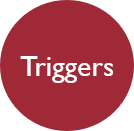 The starting point of our experience is a trigger. These may be situations, conversations, key words, people, and much more. These may be external, such as a conversation, or internal, coming from a thought, or image or fantasy.
The starting point of our experience is a trigger. These may be situations, conversations, key words, people, and much more. These may be external, such as a conversation, or internal, coming from a thought, or image or fantasy.
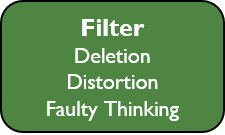 We filter that trigger – and the information it conveys. We delete information, distort it, or have faulty thinking. In such way, we see a reality that is not a reality. For example, we may believe we know what someone is thinking, by their action, but we don’t know. We are guessing. How we get triggered comes from meaning, life rules and memories.
We filter that trigger – and the information it conveys. We delete information, distort it, or have faulty thinking. In such way, we see a reality that is not a reality. For example, we may believe we know what someone is thinking, by their action, but we don’t know. We are guessing. How we get triggered comes from meaning, life rules and memories.
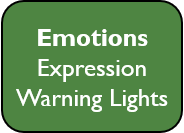 From the information we get, we give it meaning. It may link to memory (previous situations or our childhood), and we get our motivation on how we react to that trigger. This helps feed and is fed by our emotions. Our emotions can then drive our choices. But there is no inevitability of any particular action. Just because we are angry, we don’t have to do anything. That’s were rules come in, such as ‘If I feel angry then it must be someone else’s fault’.
From the information we get, we give it meaning. It may link to memory (previous situations or our childhood), and we get our motivation on how we react to that trigger. This helps feed and is fed by our emotions. Our emotions can then drive our choices. But there is no inevitability of any particular action. Just because we are angry, we don’t have to do anything. That’s were rules come in, such as ‘If I feel angry then it must be someone else’s fault’.
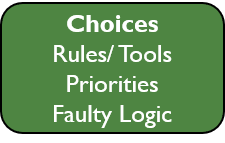 With the information of the situation, the meaning we find in it, and our history we then need to make a choice to react to the trigger. This comes from the rules we have for such a situation, the tools we have to hand to make decisions, the priorities we have based on our values, and the logic we use to make decisions.
With the information of the situation, the meaning we find in it, and our history we then need to make a choice to react to the trigger. This comes from the rules we have for such a situation, the tools we have to hand to make decisions, the priorities we have based on our values, and the logic we use to make decisions.
For example, our neighbour has bought a car. It (must?!) mean they are showing off. and our rule is we must show that we are not less than them, so we must buy a new car too. But do we have to?
Based on our choices we can do something AND also not do something. The lack of action is as important as action itself.
All this intellectual thinking about the way we react is not what we normally do. Our brain fills with short cuts. It saves time, but it also can put us in a rut. These short cuts are helpful for rapid reactions – such as airline pilots in a crisis but it can also hurt us where we grab for a beer when we feel low. This is where our good and bad habit lie and where addictions sit. The four steps of trigger, thinking, emotion, and habit/choice are the core to the ‘cognitive behavioural therapy’ to break each of steps and become more aware to make new choices.